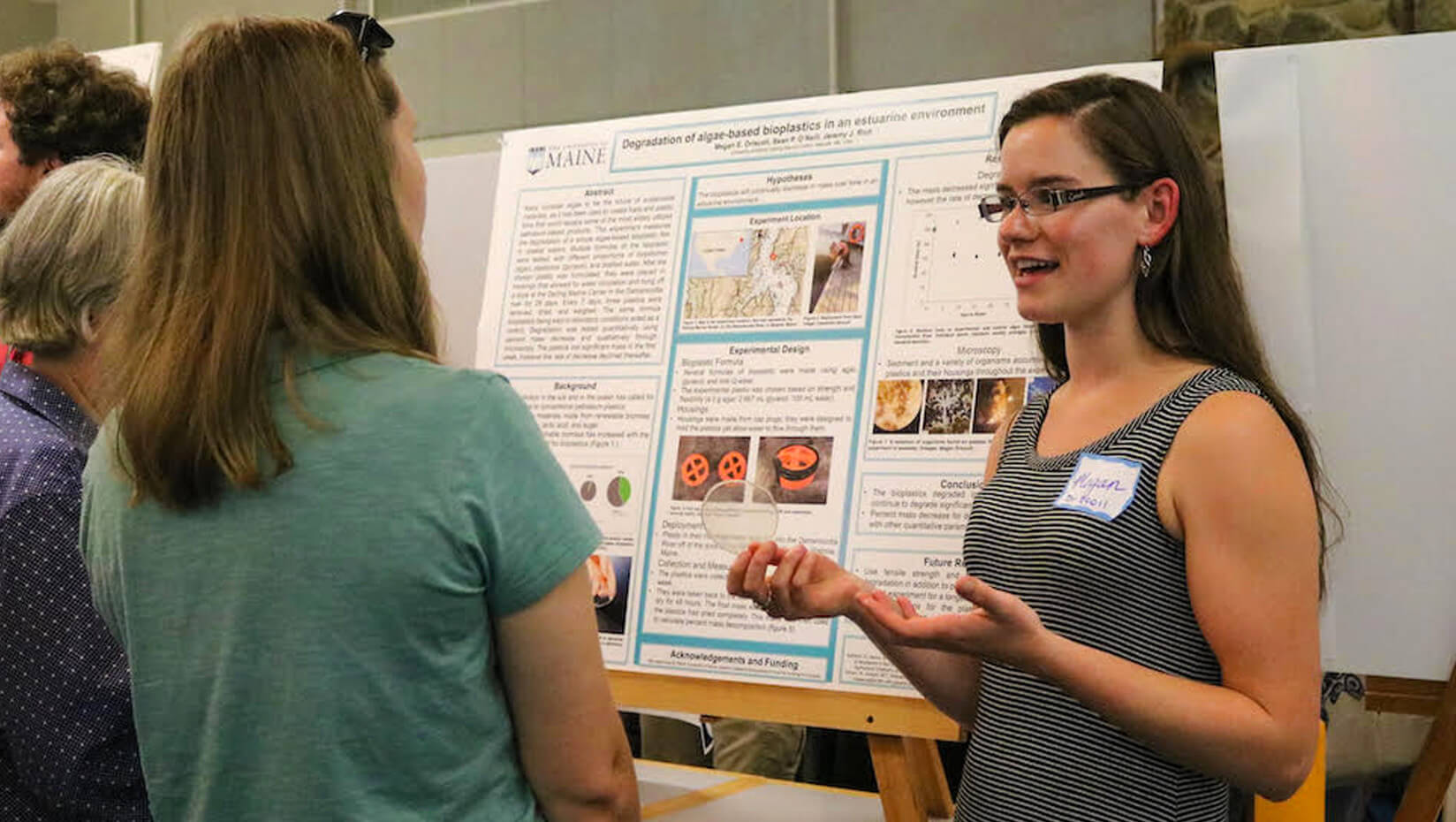
Students share marine science research at SEA Fellows Symposium
Megan Driscoll wants to replace plastic made of petroleum with plastic made of algae.
So this summer, the University of Maine intern made algae-based bioplastic and documented how it broke down over time in the Damariscotta River Estuary.
Driscoll, a junior marine sciences major from Chelmsford, Massachusetts, presented her project Aug. 6 at the fourth annual SEA Fellows Symposium at the University of Maine Darling Marine Center.
She was joined by 39 other SEA Fellows hailing from 13 schools in Maine and beyond. Each studied a marine topic in collaboration with a research mentor at a Maine university. Industry professionals also served as project advisers for many students.
SEA (Science for Economic Impact and Application) Fellows is an undergraduate training program led by UMaine and University of Maine at Machias, with support from the Darling Marine Center, Downeast Institute and Maine EPSCoR.
The fellows presented posters about how clams, oysters and other coastal species respond to changing environmental conditions; how changes to post-harvest storage of lobster may increase value; and emerging information on the ecological, economic and social factors that contribute to sustainable aquaculture and fisheries in Maine.
Heather Leslie, director of the DMC and UMaine associate professor of marine sciences, and Brian Beal, director of research at Downeast Institute and UMM professor of marine ecology, organized the event.
“It was fantastic to see so many different people interested in Maine’s ocean and marine economy come together,” says Leslie. “And the students did a great job, sharing their science and explaining how each of their projects are advancing understanding and opportunities in Maine and beyond.”
UMaine President Joan Ferrini-Mundy and University of Maine System Chancellor Dannel Malloy welcomed more than 100 people to the symposium. Ferrini-Mundy and Malloy also toured the waterfront laboratories and talked with researchers and business incubator clients who work at the Walpole campus.
Communications training for the fellows preceded the symposium. Curt Brown of Ready Seafood Co. was the featured speaker at lunch.
Brown, a UMaine alum and marine biologist with the Portland-based wholesale lobster company, shared his perspective on the importance of research-industry partnerships, particularly in light of the rapidly changing environmental conditions that UMaine scientists and many others are observing in the Gulf of Maine.
The SEA Fellows program is designed to catalyze university-industry partnerships, and support undergraduate research related to Maine’s marine economy and the coastal marine ecosystems and human communities that support it.
Contact: Jessica Stumper, Jessica.stumper@maine.edu, 207.563.8135
